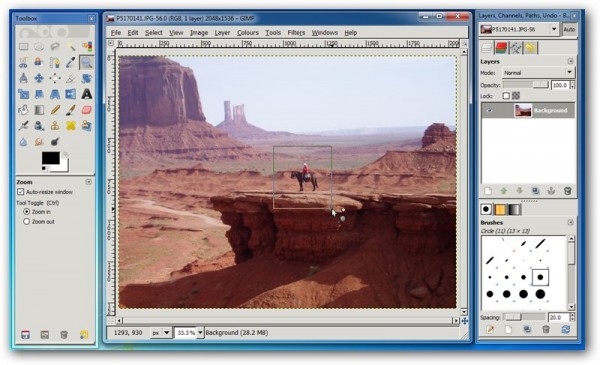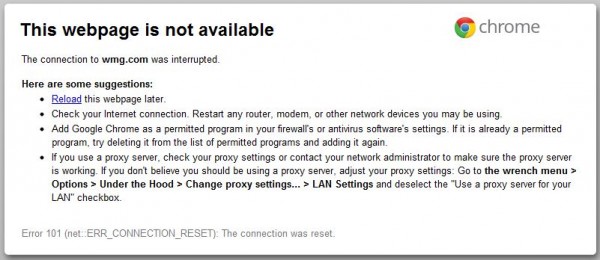
I'm a second year doctoral student, and I've got some concern about something I heard today that I want to share with any forward-thinking university president, but also with you.
Many schools will be looking at a new e-textbook platform from Apple that will have long-lasting impact on curriculum, students, teaching and cost of education.
Dear President Jones:
Hi, I’m one of your Doctorate in Education students. I have a concern I would like to share with you.
As you well know, this year my tuition went up- again. I’ve seen all your emails explaining this situation -- that these are tough times with steep cuts in state funding due to a loss in tax revenue. I’m sure you know that, according to the Center for College Affordability and Productivity, college tuition went up 757 percent from 1980-2009. For perspective, healthcare costs during this same timeframe went up 401 percent. I think you know tuition is a real problem and truly do want to deliver us the highest quality education at an affordable price.
This is why I’m imploring you not to adopt Apple’s iBooks 2 platform for this university.
Today, Apple announced new iBooks 2 software that will make it so a student like myself can buy all his textbooks as interactive ebooks. Among other things, Apple says they’re going to fix the problem of ridiculously high textbook prices by offering books from publishers like McGraw Hill that would normally cost $75 for only $15 through iBooks 2. Additionally, they announced a way for my professors to easily publish their own textbooks and post them right onto Apple’s iBooks platform. They also released an app so that iTunes U can now become an easy way to do online learning, with iBooks integrated right in with audio and video.
This all sounds great until you consider one thing: it all requires an iPad.
Apple is like that kid in grade school that doesn’t like to play nice with anyone else. He only lets you play with his toys as long as you play by his rules. That’s kind of what iBooks 2 is. You can take advantage of all these new tools only if you play by Apple’s rules, and those rules entail using an iPad.
I know that doesn't seem like a crazy proposition. Apple’s business model is based on its hardware sales, after all. This is why Apple has no intention of making iBooks 2 accessible on competitor devices, like other companies that sell ebooks do. So while I can read a Kindle textbook on my Android phone, Macbook Pro and Kindle Fire effortlessly, I can only read an iBook 2 textbook on an iPad or other Apple product. That stinks! (How cool iBooks 2 would be if it ran on the same HTML5 open standards that Steve Jobs touted in his condemnation of Flash!)
I know your time is tight so let me get to my point. If you switch our school over to using iBooks 2, you are just taking the premium that the textbook publishers were charging us and putting it right back into Apple’s pocket in the form of the premium that I will now be charged for having to buy an iPad.
Let’s say that you decide the university, rather than me, covers the costs of the iPad. Sounds good but, as you know, nothing is truly free in this world. That $500 you’re paying per iPad (at a minimum) is coming out of some budget, and budget holes are almost always covered by increasing my tuition or asking taxpayers for more money (usually both!). You also know that auxiliary services, like new football stadiums, fancy new rec centers and, yes, cool yet pricey gadgets like iPads attract new students but also drive up costs. So even if the university issues me an iPad to access my iBook 2 materials, I’m still paying for it, albeit indirectly.
A more practical, cost-effective approach for required digital media would use a software that is device agnostic. That means that instead of telling me what kind of computing device to buy, you’re giving me the choice to pick my own. Everyone has different personal preferences and financial realities to deal with, after all. The beautiful thing about a competitive marketplace is that there are lots of options and price points for consumers to choose from, from $200 netbooks to $2,000 MacBook Pros. Personally, I’ve been buying my e-textbooks from Amazon for awhile now and love that, no matter what kind of device I’m on, I know I can always access all my books, notes and highlight. If you went with iBooks 2, I would only be able to get my materials on Apple products. That sucks!
If you want to use tablets, then Android is a good device agnostic platform to consider. Unlike Apple’s iOS that runs on the iPad, Android runs on lots of different tablets. This device competition is pressuring prices down in the Android tablet market. For instance, my Kindle Fire only cost me $200. Also, I saw today that Lenovo actually is selling their 7 inch tablet for $167! As a student, money is always tight, so I really like having the option to save money. And, though Apple pundits in the tech media might have you believe differently, Android tablets work just fine for schoolwork. I have been using my Fire to help with my dissertation research and it has proven to be a great tool.
Finally, if you’re really interested in letting our professors publish ebooks, I would recommend encouraging them to do so under the Open Textbooks philosophy as exemplified by collegeopentextbooks.org. These guys think that knowledge should be free, open and accessible to all. If you really want to save us money, this is a better option than a proprietary platform with a hardware lock-in like Apple’s.
So, once again I’m pleading that you not to adopt iBooks 2 for our university. It sounds good when coming from the Apple PR machine, but really will just hurt us students in the long run by driving up costs and locking our content up into Apple’s proprietary ecosystem.
I think iPads are great devices. I’ve seen you walking around campus with yours. Many of my professors have iPads and I know they love them. In fact, higher ed seems like it is in love with the iPad!
But you loving your iPad shouldn't affect my future. I’m going to graduate with lots of debt, debt incurred from the ever-increasing tuition I pay. If you’re going to charge me more to attend this institution as well as ask taxpayers for increased support, then I think you owe it to both of us to make sure you are spending our money wisely. Locking us in to a proprietary ecosystem in which there is only one hardware option -- the iPad forever -- doesn’t seem like the best way to do this.
You see, President Jones, with iBooks 2 Apple isn’t trying to sell you innovation, they’re just trying to sell you iPads.
Sincerely,
Ryan Tyler
Photo Credit: hxdbzxy/Shutterstock
Ryan Tyler is a free-lance writer and educator living in Portland, Or. He has worked in the entertainment industry as well as K-12 and higher education. His interests include education reform, distance education and using technology to make the world a better place. Of course, he’s also a tech geek.





 Even with a majority of wireless consumers not even using 4G technology yet, the wireless industry is already looking to next-generation technologies. The International Telecommunications Union this week awarded both LTE-Advanced and WiMAX-Advanced the "official" designation of IMT-Advanced.
Even with a majority of wireless consumers not even using 4G technology yet, the wireless industry is already looking to next-generation technologies. The International Telecommunications Union this week awarded both LTE-Advanced and WiMAX-Advanced the "official" designation of IMT-Advanced.
 For you Sherlock Holmes types out there, how would you like a case to crack?
For you Sherlock Holmes types out there, how would you like a case to crack? Chris Boss is an advanced Windows API programmer and developer of 10 year-old
Chris Boss is an advanced Windows API programmer and developer of 10 year-old 

